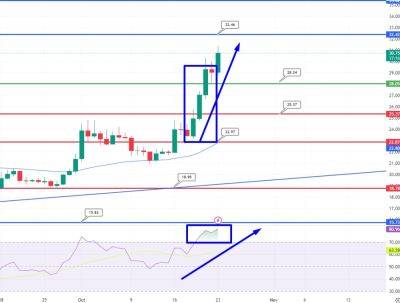The Story Behind the U.S. Government's $5 Billion in Bitcoin – Here's What You Need to Know
The U.S. government has become one of the largest holders of Bitcoin (BTC), acquiring approximately 200,000 coins (worth around $5 billion) through seizures related to criminal activities.
The digital assets were seized from cybercriminals and darknet markets and are securely stored offline in encrypted hardware wallets controlled by various federal agencies, including the Justice Department and the Internal Revenue Service (IRS).
The fate of the U.S. government's Bitcoin holdings has sparked curiosity among crypto traders.
Any decision to sell these assets could potentially impact prices and send ripples throughout the trillion-dollar digital asset market.
However, the government's approach is not driven by market speculation or timing.
Instead, the accumulation of BTC is a byproduct of the lengthy legal process involved in confiscating and managing these assets.
Jarod Koopman, the executive director of the IRS's cyber and forensics services section, told the Wall Street Journal that the government does not actively trade or time the market.
Instead, their actions are dictated by the timing of the legal process.
Recent seizures alone have added over 200,000 bitcoins to the government's coffers, and even after selling a portion of them, the remaining holdings are valued at over $5 billion. It is likely that the total stash is even larger.
The process from the initial seizure to the final liquidation of these assets can take several years.
In some cases, this delay has worked in the government's favor, as the value of Bitcoin has significantly appreciated over time.
For example, when the cryptocurrency exchange Bitfinex was hacked in 2016, bitcoin was trading around $600.
By the time the individuals responsible for the hack
Read more on cryptonews.com





















